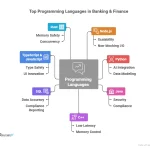
There are a few key differences between mutual funds and ETFs. Mutual funds invest in stocks while ETFs invest in bundles of securities. A mutual fund has a single sponsor, but ETFs are run by third parties, or authorized participants. Both types of funds have their pros and cons. The main difference is the way the funds are taxed: mutual funds are subject to capital gains tax, while ETFs are not. As such, they are often more tax efficient than mutual funds.
Active mutual funds have higher fees and expense ratios than ETFs. In addition, they require more human power to operate. Mutual funds also charge sales loads, which are front-end and back-end fees. These fees can lower the actual investment capital of the investor. Mutual funds also require a larger initial investment than ETFs.
Mutual funds can target specific market sectors, while ETFs can target specific countries or regions. While ETFs are generally more generic, mutual funds are often better suited for individual investors. Mutual funds offer more options and are managed by professional managers. Mutual funds may require more capital to invest, but you may enjoy a higher return.
Mutual funds and ETFs are similar, but there are some major differences. Mutual funds are professionally managed baskets of shares, while ETFs have a more flexible structure. They can invest in a variety of securities, while ETFs invest in a single portfolio of stocks or other securities. Mutual funds have the added benefit of diversification, which is helpful for reducing the risk in your portfolio.
A mutual fund is a good option for people with a low risk tolerance. An ETF may be more tax-efficient because it does not have to be repurchased. If you sell your shares, however, you must pay capital gains tax. Mutual funds are less tax efficient than ETFs.
Mutual funds are not priced every day, so the price of an ETF can fluctuate throughout the day. ETFs can be bought and sold on margin, but mutual funds have to wait until the market closes to receive their prices. Mutual funds can have more volatile prices than ETFs, so it is important to research your investment options before you make a decision.
Mutual funds and ETFs offer diversification, flexibility, and low costs. If you’re just starting out, it’s important to research both options to ensure you’re making the right investment choice. Mutual funds are generally managed passively, while ETFs have an active manager.
Mutual funds are pooled investment vehicles that use investors’ cash to purchase stocks and bonds. However, they are managed by professional money managers, who buy and sell investments for profit. In contrast, index funds buy all shares in an index and attempt to replicate the performance of the market as closely as possible.





